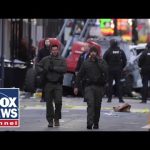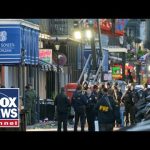In a world where radicalization seems to be creeping into the everyday narrative, a recent discussion has put the spotlight on some very important truths. A violent attack in New Orleans has raised eyebrows and stirred serious concerns among conservative leaders and commentators about the ongoing issues linked to radicalization. They emphasize that these acts of violence have little to do with true practices of religion and much more to do with twisted ideologies that lead individuals down a dark path.
It’s been said more than once: the actions of one do not reflect the beliefs of many. In light of the assorted revelations regarding the attacker, some individuals, including community leaders, have spoken out to clarify that Islam, as a faith, does not endorse such actions. Instead, the narrative suggested is that radicalization, fueled by a plethora of societal and global pressures, is far more to blame than any religious doctrine. This distinction is crucial as it helps to separate the wheat from the chaff when discussing the motivations behind violent acts.
In engaging in conversations about how to rectify the issue of radicalization, one commentator noted the lack of clear leadership from current political powers. Our leaders are expected to set the moral compass of the nation, yet many observers believe we’ve been left without a guiding hand. The ongoing protests celebrating violence rather than condemning it make this all the more alarming. The question on everyone’s mind is: how do we turn the tide on such a troubling trend?
First and foremost, it’s about community and vigilance. A strong suggestion was made to check in on loved ones—family, friends, and especially veterans—to ensure that they are receiving the support needed to foster healthy values and resilience against extremist ideologies. The narrative here is one of connectivity and responsibility. When individuals feel they have a safe network, they are less likely to fall prey to extreme views.
Moreover, an emphasis was placed on the need for straightforward messaging from our leaders about good and evil. When the fabric of society is filled with ambiguity—when good and evil seem to be blurred lines—confusion flourishes. Leaders must take a firm stance, unequivocally denouncing terror and celebrating the good. After all, Americans know who the heroes are. They can identify the brave individuals who stand up to defend against those promoting violence, and they expect their leaders to do the same.
As the current administration faces scrutiny, it is now more important than ever for future leaders to emerge and tackle these issues decisively. The simple truths of morality must become the bedrock of our nation’s policies. Only time will tell if we can rise against the tide of radicalization, but one thing is certain: it begins with solid leadership and a community that stands together against the shadows of violence.




